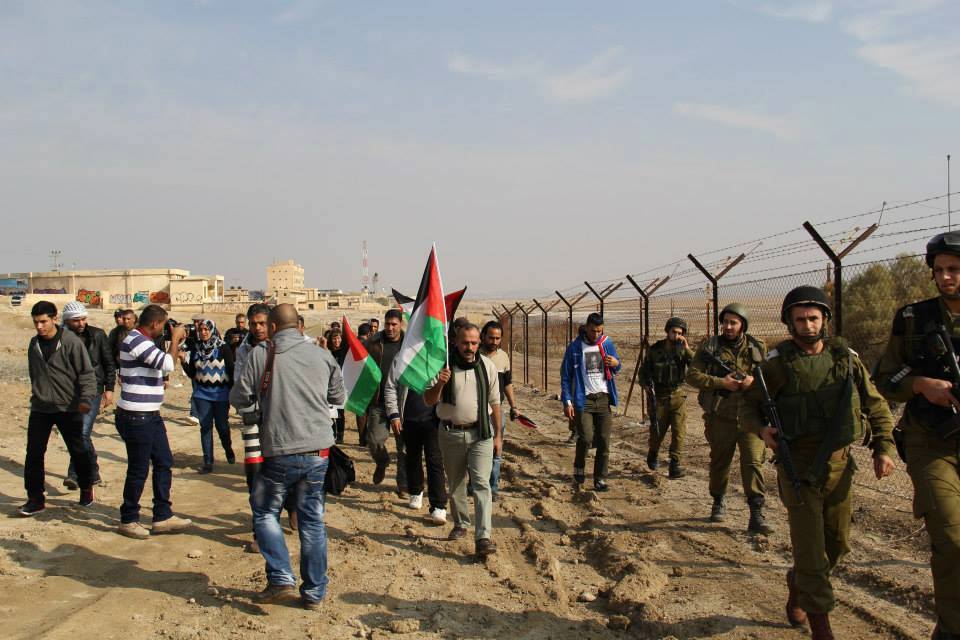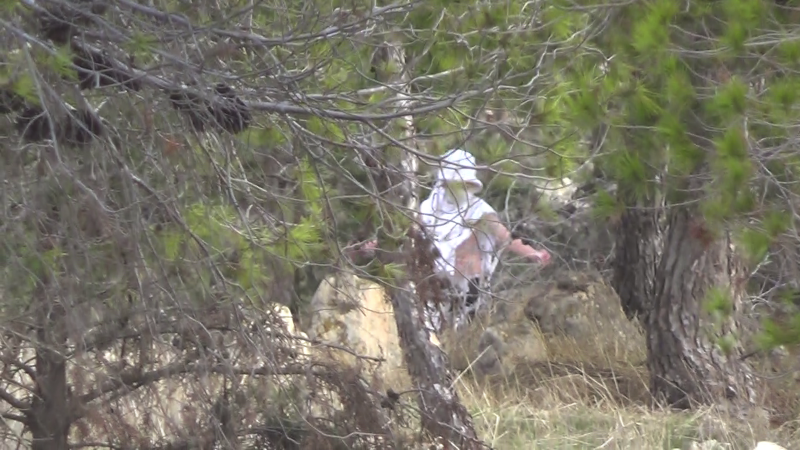-
Protest march towards the Dead Sea
03rd January 2014 | International Solidarity Movement, Khalil Team | Jericho, Occupied Palestine On the 1st January, at approximately 12pm, 40 Palestinian and international activists attempted to march towards the Dead Sea in an effort to protest against the proposed Israeli bill to annex the Jordan valley. Israeli forces prevented the demonstration from reaching the shore, in response the […]
-
85-year-old Saeed Ali Gasser from Kafr Qaddum, killed by suffocation from tear gas
02nd January 2014 | International Solidarity Movement, Nablus Team | Kafr Qaddum, Occupied Palestine Yesterday, Wednesday 1st January, Israeli forces raided the village of Kafr Qaddum during an anniversary march to commemorate the start of the Fatah movement, 49 years ago. Israeli soldiers and border police shot many tear gas canisters towards the villagers and into […]
-
Settlers attacked member of the South Hebron Hills popular committee
30th December 2013 | Operation Dove | At Tuwani, Occupied Palestine On December 28, a group of settlers attacked Palestinians who were plowing a field in the South Hebron Hills village of At Tuwani. Hafez Huraini, a member of the South Hebron Hills Popular Committee (SHHPC), was injured in the attack. According to Huraini, at about 2.45 […]
Action Alert An Nabi Saleh Apartheid Wall Arrests BDS Bethlehem Bil'in Cast Lead Demonstration Denial of Entry Ethnic Cleansing Farmers Gaza Global Actions Hebron House Demolition International law Israeli Army Jerusalem Live Ammunition Nablus Ni'lin Prisoner Ramallah Rubber-coated steel bullets Settlement Settlers Settler violence Tear-Gas Canister Video



